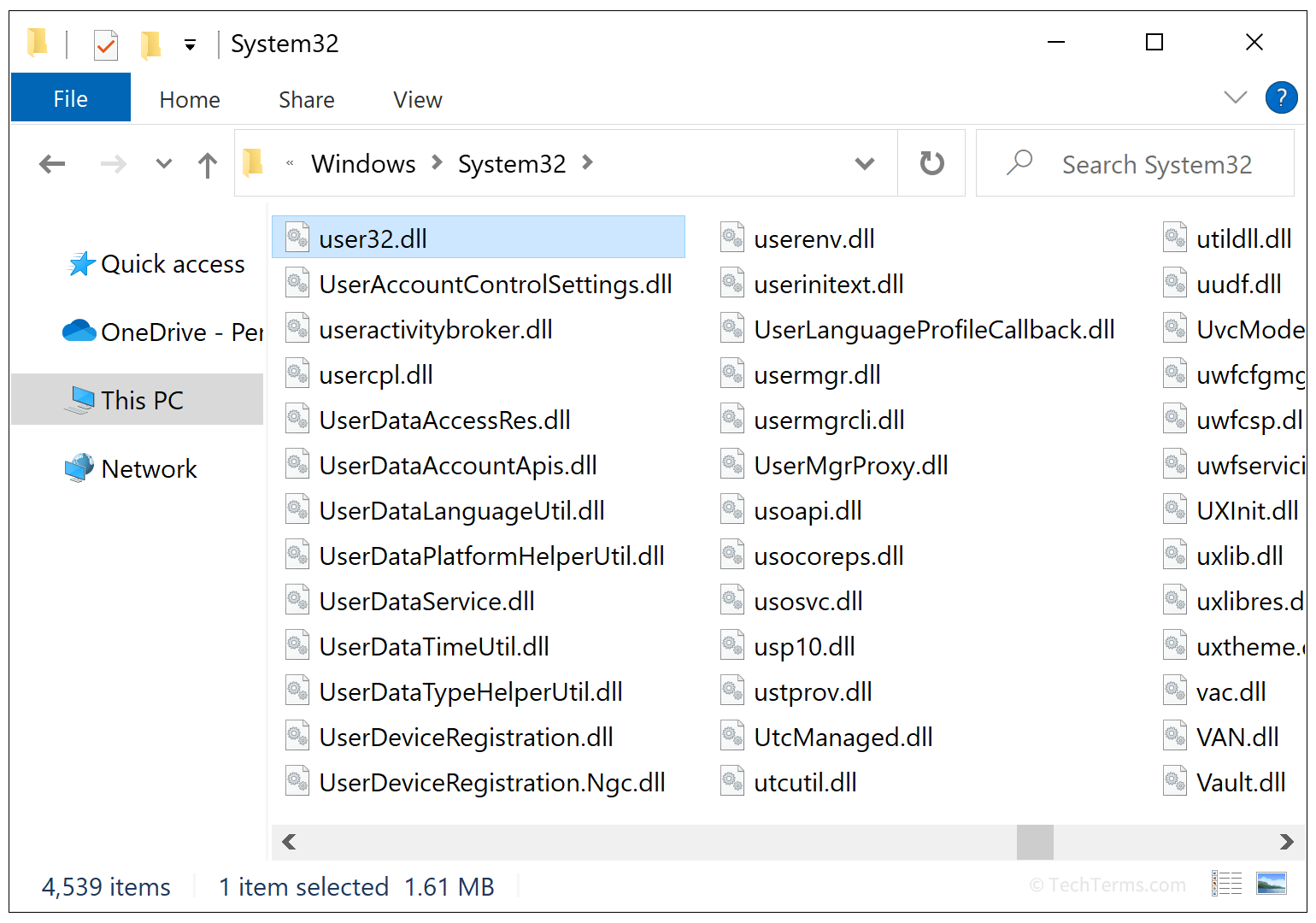DLL
Stands for "Dynamic Link Library."
A DLL is a compiled library of functions, data, and other resources that programs running in Windows may use. Any program can access the code in a DLL, and multiple programs may access a DLL at the same time. Accessing a shared code library means that programs don't need to include that code in their executable files, which helps them to use less storage space and system memory.
When a program needs to access the functions and resources in a DLL file, it loads it into system memory at runtime and creates links to the resources it needs. This process is called dynamic linking, and it allows the program to use the functions, data, and resources in the DLL as if they were included in the program itself. However, a program that depends on dynamic linking won't run if any of its DLL files are missing.

Windows includes many DLL files that contain basic system resources like API functions, device drivers, and user interface elements. Any program running on Windows may access these DLL files to use those shared resources. Third-party programs may install additional DLL files, offloading functions and data to allow the program to run more efficiently. DLL files may also receive updates separately from the programs that call them to fix bugs without recompiling the entire application.
NOTE: The opposite of dynamic linking is static linking, which links a program's libraries and dependencies to the executable file during compilation. The resulting executable file is larger but runs without any additional files.
File Extensions: .DLL
 Test Your Knowledge
Test Your Knowledge